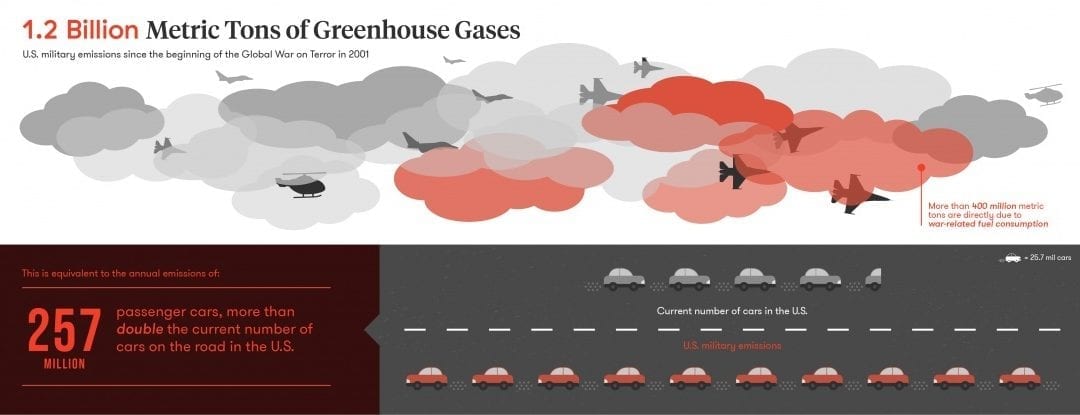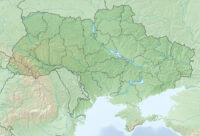A new report from the Watson Institute at Brown University details the staggering greenhouse gas emissions from the U.S. military: 1.2 billion metric tons! This is equal to 257 million passenger car emissions – more than double the number of cars on the road in the U.S.
The United States continues to spend far more on the military than any other country—almost as much as the next eight largest military spenders combined. Yet the main debate in Congress is not over reducing military spending, but over how much it should be increased, with the Trump administration proposing a spending hike from $716 billion to $750 billion, including Department of Energy military nuclear programs.
The questions of peace, democracy, economic equality, and the ecological requisites for human survival never have been as inextricably intertwined as they are now. The ecological and economic challenges we face are both a cause and effect of the deteriorating political conditions that drive international conflict. The loss of varied, human-scale organizations in the social and political world, combined with the concentration of economic power in organizations of ever greater scale and scope, has left us vulnerable to authoritarian politics. The dynamic that drives the global economy—endless competition for material wealth and social power—is straining the limits of the ecosystems we all depend on. As governments fail to address these crises globally, it is necessary for people to work together, organize and take non-violent action!
To break out of this fatal cycle, first, we need to better understand the common causes that link the many urgent challenges we face. We encourage all those on the UFPJ list to read the Costs of War project report on climate change and the costs of war, and to bring these facts to the table in your community groups.



